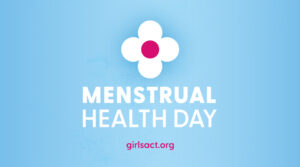The discovery and development of antibiotics was a watershed in medicine, since until its arrival there were many diseases that there was no way to control, including many of the most common sexually transmitted infections (STIs). Today, antibiotics are so close at hand that it’s easy to use them constantly, but abusing their use will sooner or later lead to the germs you seek to fight becoming more resistant.
People using PrEP and antibiotics
PrEP (or pre-exposure prophylaxis) is treatment that prevents HIV in people who are at higher risk of exposure to the virus, such as men who have sex with men and transgender women who, for various reasons, do not use condoms regularly. Regular in your sex life.
It must be remembered that PrEP only protects against HIV, but not against the rest of the STIs, since
Due to this, it has been detected that some people who use PrEP also use antibiotics to counteract STIs, either as a preventive scheme, taking them before an intimate encounter, or as a “morning after pill”, after having sex without protection.
According to the Aidsmap.com portal, specialized in information about HIV, an online survey, carried out in 2019 in the United Kingdom, shows that 9% of those who use PrEP are buying antibiotics to prevent STIs.
Those who bought antibiotics were more likely to have had at least five condom less sex partners in the past six months, more likely to have been diagnosed with an STI in the past year, and more likely to participate in Chemsex consumption of drugs). These data suggest that PrEP users with risk factors for STIs identify that they are at higher risk and purchase antibiotics to try to prevent infection before developing symptoms or testing positive for an STI.
However, the British Association for Sexual Health and HIV advises against the use of antibiotics to prevent STIs, as there are concerns about antibiotic-resistant bacteria.
The case for doxycycline
Some small-scale studies have shown that the antibiotic doxycycline can be used to prevent STIs, similar to how PrEP is used to prevent HIV. Doxycycline has been shown to decrease STI rates in gay and bisexual men with HIV and in PrEP users without HIV.
However, gonorrhea already has high levels of resistance to doxycycline. Therefore, it is highly unlikely that this antibiotic will prevent gonorrhea. Also, this and similar drugs are used to treat genital mycoplasma, but there are already significant concerns about antibiotic resistance in treating this STI.
Resistance means that drugs that were effective in treating certain bacterial infections lose their ability to do so. Essentially, the bacteria become “smarter” than the drug, rendering it ineffective.
So far, doxycycline is effective as a treatment for chlamydia and is also used to treat syphilis in people allergic to penicillin, but this could change if it continues to be used unchecked and resistance develops in the microorganisms that cause these other STIs.
The discussion continues
Although the effectiveness of doxycycline as an “overnight” treatment for some STIs was evaluated in a study called DoxyPEP, the US Centers for Disease Control and Prevention has issued some guidance on its use, but has not yet provided clearer orientation. This is still considered an off-label use of the antibiotic.
Formally, taking antibiotics is not recommended, mainly due to major concerns about the development of resistance. Taking a drug and then despite this getting an infection that easily develops resistance could further increase rates of resistance to that drug in the community at large.
Resistant strains circulate within the population, leading to failure of treatments that previously worked, even in people who do not use antibiotics to prevent STIs.
According to the data collected, there is a danger of running out of effective antibiotics to treat resistant bacteria, complicating treatment and potentially affecting the health of an entire community. Resistance is a concern both for the bacteria that cause STIs and for other common infections.
The usual: medical consultation
If you are considering using antibiotics to prevent any STIs, regardless of whether or not you are taking PrEP, you should consult a healthcare professional. Uncontrolled use of antibiotics could, in certain scenarios, bring more long-term harm than immediate benefit.
And if you prefer to play it safe, use a condom in all your sexual relations. At AHF Latin America and the Caribbean we have them free for you, as well as HIV detection tests at no cost, confidential and in minutes. Locate our offices in your country and learn about all our services.






